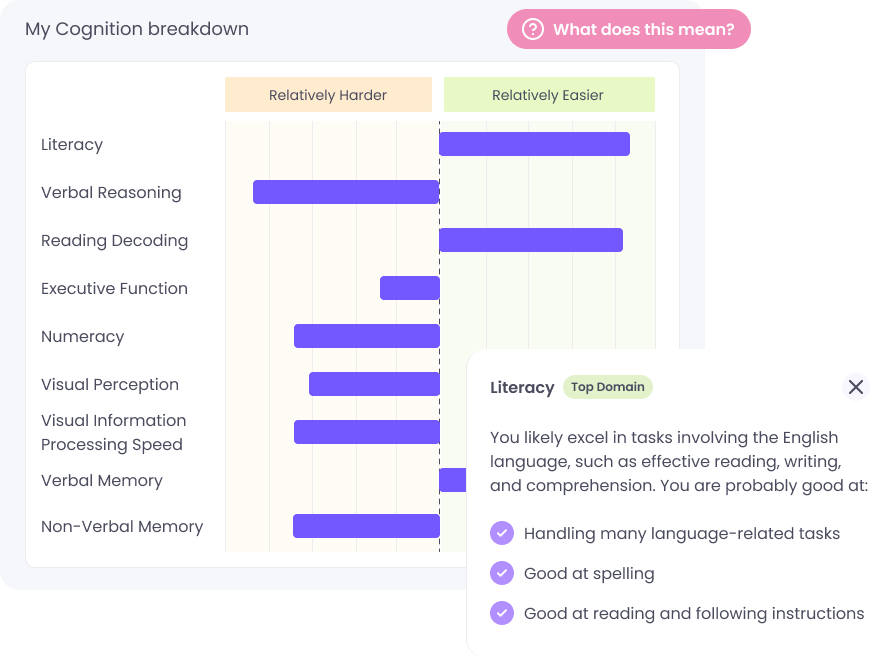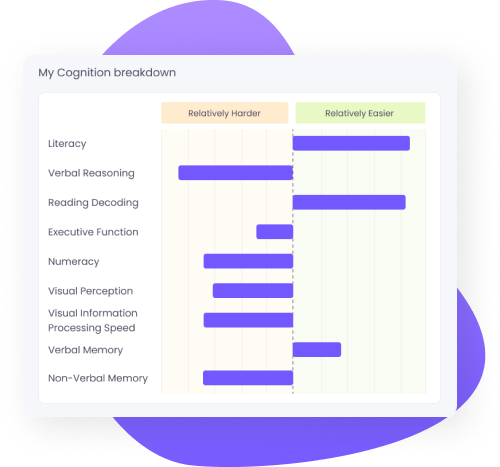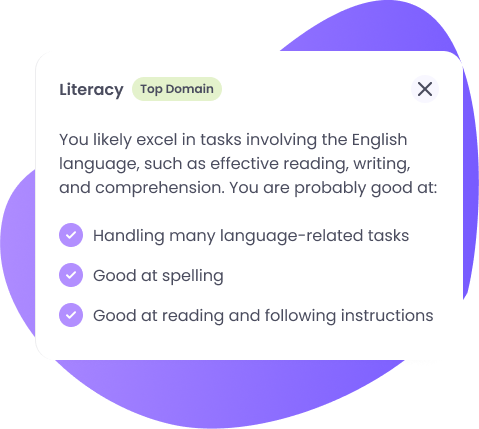Cognitive Mapping
Providing a foundation for neuro-inclusion.
Gain deeper insights into your individual cognitive patterns, helping you understand how your mind approaches everyday tasks and challenges.
Book a demo See pricing
When we talk about neurodiversity, we are acknowledging that everyone experiences differences with their cognition. That said, everyone has their own way that they think, learn and process information. No two brains are the same. Our cognitive mapping creates a visual representation of an individual’s cognitive make-up; providing a basis for understanding how that individual processes, interacts and evaluates information.
Our Cognitive Mapping unlocks the intricacies of each brain’s thinking and learning patterns to leverage distinctiveness, enhance productivity, and amplify cognitive output.

Employees: personalised overview and insights into their cognitive differences.
Employers see an overview of their workforce’s cognitive profiling, a basis for providing support and adjustments.
A powerful guide for discussions between individuals and their manager, to review areas they clearly excel within, and any areas in which they may require support.
Cognitive mapping provides employees with personalised reports that offer valuable insights into their cognition, facilitating meaningful discussions with managers.
For employers, it delivers a deeper understanding of how their workforce processes information, learns, and performs tasks, enabling tailored support and workplace adjustments.
Our approach promotes neuro-inclusion by identifying areas where specific strategies or can enhance employee performance, leading to improved productivity and job satisfaction.
We are proud of our assessment’s clinical robustness and avoiding the assigning of labels, even for individuals with neuro-differences. Instead unveiling an individual’s natural processing bias and thinking distinctions.

Our performance-based assessment meets the highest psychometric standards, validated through five stages of research with hundreds of participants. Supported by nine Performance Validity Tests (PVTs), it ensures accurate and reliable results.
We adhere to strict ethical guidelines from The Alan Turing Institute to prevent discrimination and ensure responsible data use. Committed to data security, we use anonymised data and conduct regular security checks. Through a rigorous, science-driven approach, Cognassist drives meaningful social progress and continuous improvement.

Workplace adjustments save on recruitment costs and retain valuable talent.
Adhering to the Equality Act 2010 by making adjustments for neuro-minority individuals prevents legal issues and enhances reputation.
Organisation can confidently say they provide all employees the opportunity for support, even if they are not yet ready to disclose.
Personalised workplace adjustments boost job satisfaction through employer support and accommodation.
Create a comfortable, accessible environment can reduce stress and boost mental health.
Providing tools and resources enhances productivity by removing barriers, enabling focused work.
Informa Markets partnered with Cognassist to foster neurodiversity, creating a supportive and inclusive workplace for all employees.
See full story